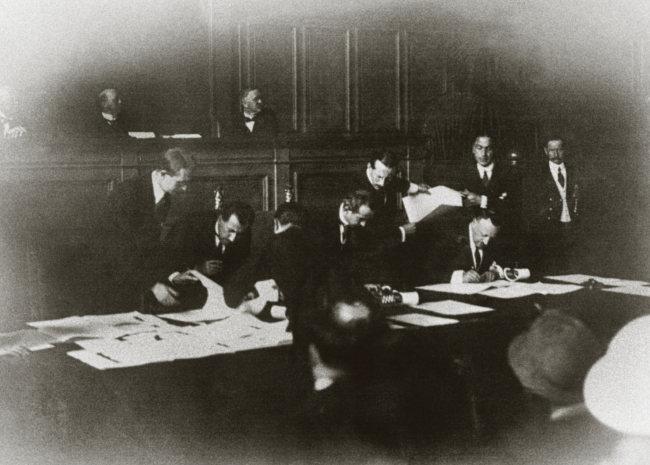
The Treaty of Lausanne is signed
Starting on November 11, 1922 and continuing with intervals for eight months, Lausanne Peace Conference reached a happy conclusion on July 24, 1923. Per the Treaty of Lausanne, Turkey was officially recognized by all global nations as an independent and sovereign state within the borders of Misak-ı Milli (National Oath).
The signing ceremony of the Treaty of Lausanne was held at the hall of the University of Lausanne on July 24, 1923. The U.S. representative was seated next to the Turkish delegates comprised of İsmet İnönü, Dr. Rıza Nur, and Hasan Saka. Greek Prime Minister Venizelos, on the other hand, had preferred to pull behind and perch on the side of his chair among the states of U.K., France, and Italy.
President M. Schuer of the Swiss Confederation delivered his address from the dais. Reading the name of the treaty and its appendixes after his speech, the president said, “Gentlemen, go ahead and sign!”
Serving as the general secretary of the conference, M. Massigli got up from his seat, approached İnönü, and said, “Please, go ahead, you, as the esteemed representative of your country, will sign first.” İnönü took out the gold pen Mustafa Kemal gave him solely for this purpose and calmly began signing the treaty and its appendixes.
The eight-month-long diplomatic war was finally over and the great struggle the Turkish side gave for unconditional independence had been won. According to Mustafa Kemal Pasha, the Treaty of Lausanne was a document that “epitomized the failure of a great assassination planned for centuries against the Turkish nation and allegedly executed with the Treaty of Sèvres,” and “a political victory unprecedented in the history of the Ottoman Empire.”